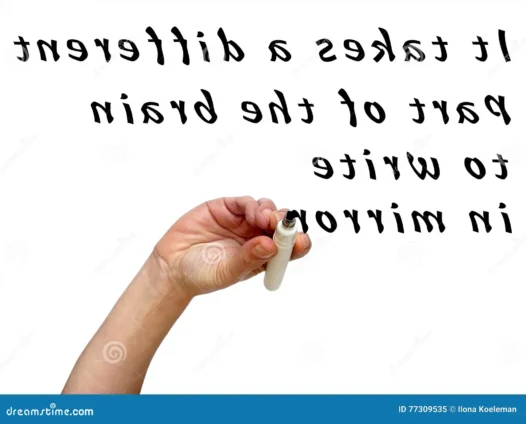"Alternative truth" has been plainly defined as the "new truth" or, more accurately, outright lies.
Also known as "alternative facts," this concept refers to a theory presented as an alternative to a more widely accepted one or a statement intended to contradict a more verifiable but less palatable truth.
According to The Sunday Times (2017), for populists, there can always be alternative facts because, for them, there are no facts.
Alternative facts have been called many things: falsehoods, untruths, and delusions. A fact is something that actually exists—what we would call "reality" or "truth." An alternative is one of the choices in a set of given options, usually the opposite of another. So, to talk about alternative facts is to talk about the opposite of reality (delusion) or the opposite of truth (untruth) (Slang Dictionary).
Kellyanne Conway, an advisor to President Donald Trump, used the term "alternative facts" on NBC's Meet the Press on January 22, 2017, in a conversation with the show's moderator, Chuck Todd. Conway employed the phrase to defend false statements made by press secretary Sean Spicer the day after Donald Trump took office. Todd challenged her immediately, saying, "Alternative facts are not facts. They are falsehoods." The term caught on widely with critics of the Trump administration.
In discussions of alternative facts, the terms "post-fact" and "post-truth" often arise. These refer to an environment where objective facts are disregarded, and emotional appeals are used to shape public opinion, much like Stephen Colbert's concept of "truthiness," which involves trusting gut feelings over facts. As his comedic persona says, "Anyone can read the news to you. I promise to feel the news at you" (Dictionary.com).
The expression "alternative facts" evokes Newspeak, the language of the fictional ruling party's propaganda in George Orwell’s 1984. In the novel, Newspeak leads to doublethink, where a person holds two contradictory beliefs at the same time and accepts both. An example from 1984 is the idea that "war is peace."
Who Uses Alternative Facts?
In addition to Trump and his staff, many use the term "alternative facts" sarcastically to poke fun at false statements. Memes featuring Conway and hashtags like #AlternativeFacts have been widely shared on social media. At protests against Trump’s controversial executive orders, even a dog was seen wearing a sign reading "#AlternativeCat" (Dictionary.com).
In reality, alternative facts are not facts. They are falsehoods.
The Ghanaian Context: Alternative Realities in Politics
Ghanaian politics over the past 16 years has entered a state of "alternative reality"—a situation where a non-existent state of affairs is believed to be true by some. People on opposing sides of political debates now seem to live in alternate realities, unable to agree even on basic facts. For instance, statements like “If the fundamentals are weak, the exchange rate will expose you” have been both defended and contradicted by politicians in convoluted arguments, leading to confusion over simple economic principles.
This is the "alternative facts" of Ghana’s own "Walewale Adam Smith."
During his media engagement after the manifesto launch for his presidential campaign, he was once again asked about this statement, and his response was: “This is a truism, it was true then, and it is true today. It is an economic truism that once the fundamentals weaken, you will see the impact on the exchange rate. This includes the GDP growth, fiscal balance, exchange rate, level of reserves, inflation, and so on."
He went on to discuss the period between 2017 and 2019, highlighting that the fundamentals had strengthened, leading to the lowest currency depreciation in 28 years. However, he admitted that the economic shocks of 2022, including a 54% inflation rate and exchange rate depreciation, were due to weakened fundamentals.
This rhetoric reflects the art of "alternative truth," where plain facts are twisted and reshaped into a narrative to suit political purposes.
Looking Ahead to the 2024 Elections
As Ghana approaches the 2024 General Elections, particularly the presidential race, citizens must remain vigilant. Politicians may use sophisticated language and back-and-forth arguments, crafted in polished English, to distract and deceive.
The country is grappling with a near-bankrupt economy, crippling debt—the largest accumulated by any single government in Ghana’s history—widespread corruption, and the reckless dissipation of public resources. Public officials have faced intimidation, been compromised, and have engaged in actions against the state and the public interest.
As a people, we must stay alert and not be swayed by these "alternative truths."
Latest Stories
-
Morocco to host CAF Women’s Champions League 2024 in November
39 seconds -
I’m sorry for backing Otto Addo – Agyemang-Badu
3 mins -
AfroGee and Kofi Kinaata team up in ‘Adom Bi’ to encourage youth
4 mins -
Election 2024: LPG will appoint more women based on competence and experience
23 mins -
Election 2024: CDD-Ghana calls for fairness in allocating security resources to flagbearers
26 mins -
Election 2024: Jahbeloved rallies Ghanaian Reggae musicians to ‘Stand For Peace’
38 mins -
Prof Toyin Falola calls for inclusion of African ancestral knowledge in education and society
41 mins -
Moving Health launches 3 new ambulances in Wa West District
43 mins -
Absa Bank Ghana focuses on customer engagement with visits and rewards during Wow October
1 hour -
Today’s front pages: Wednesday, October 16, 2024
2 hours -
EC lauds NDC’s role in re-exhibiting 2024 voter’s register
2 hours -
Amenfi Central MP unfazed by petition to vacate seat
2 hours -
East Legon accident victims were two 12-year-old girls – Police
2 hours -
Speaker advises MPs to fairly manage campaign and parliamentary responsibilities
2 hours -
I would have been in jail due to my anger – Prophet Bernard ElBernard
2 hours

